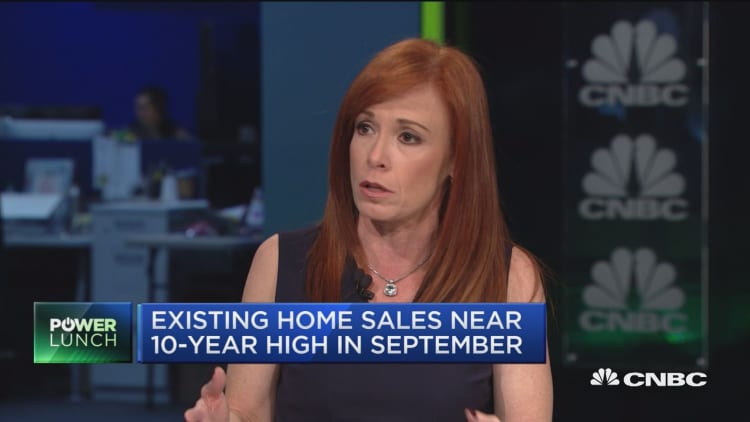A postelection spike in mortgage rates may have scared potential homebuyers enough to push them off the fence and into a contract before rates move even higher.
A rush on home-purchase mortgages fueled application totals to a 5.5 percent gain on a seasonally adjusted basis last week versus the previous week, according to the Mortgage Bankers Association. Volume was nearly 10 percent higher than the same week one year ago.
Homebuyers were entirely behind the increase, with applications to purchase a home jumping 19 percent on the week, seasonally adjusted. Purchase volume had been weak prior to the election, even though mortgage rates were near historic lows. It is now 11 percent higher than a year ago.

"The increase in purchase activity was driven by borrowers seeking larger loans, with applications for purchase loans above $417,000 increasing 16.8 percent for the week," said Michael Frantantoni, MBA's chief economist. "This change led to the average purchase application loan amount reaching a new record of $310,000. One factor that likely contributed to this boom in jumbo purchase applications is that the jumbo rate is now 12 basis points below the conforming rate for a 30-year fixed rate loan. This is the widest spread between these rates since March 2016."
The spread is able to widen because banks mostly hold jumbo loans on their own balance sheets; conforming loans are sold to Fannie Mae, Freddie Mac and Ginnie Mae, where they are securitized.
"Banks adjust jumbo rates more slowly, because they're not directly tied to actively traded securities," said Matthew Graham, chief operating officer of Mortgage News Daily.
The average contract interest rate for 30-year fixed mortgages with conforming loan balances ($417,000 or less) increased to its highest level since January, 4.16 percent, from 3.95 percent, with points unchanged at 0.39 (including the origination fee) for 80 percent loan-to-value-ration loans. The average rate for jumbo balances, in comparison, was 4.04 percent.
"Mortgage rates have continued to move higher in the postelection period, as investors worldwide are looking for increases in growth and inflation," Fratantoni said.
Mortgage applications to refinance a home loan, which are highly sensitive to rates, continued to drop, down 3 percent for the week, seasonally adjusted. Refinance volume is still about 9 percent higher than one year ago, when rates were slightly higher.
There is a theory that when mortgage rates move dramatically higher, buyers who were halfheartedly in the market get nervous and sign contracts, afraid they will be priced out by even higher rates. This is usually a very short-term effect and has yet to be proven decisively.


